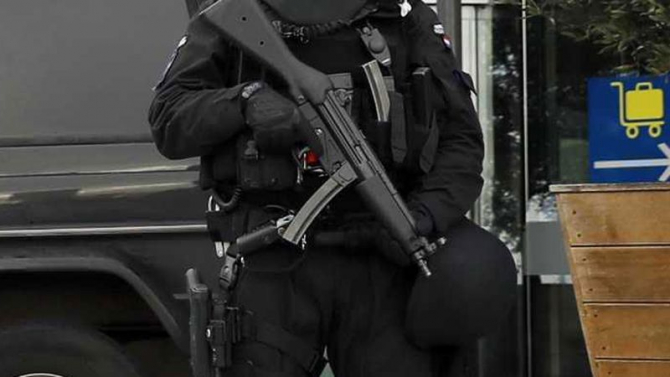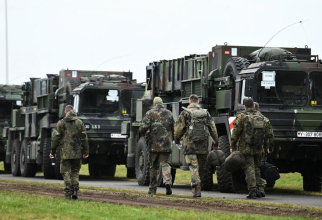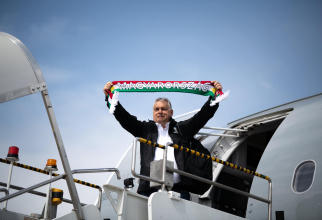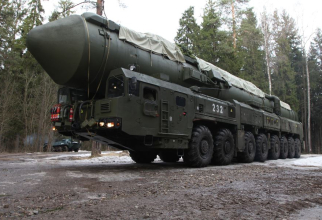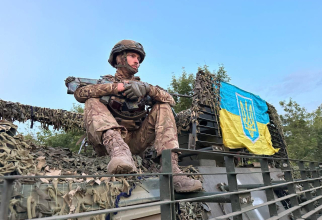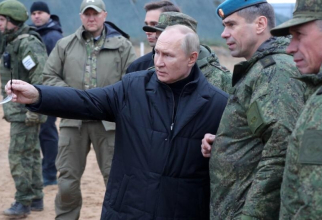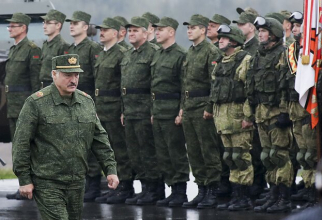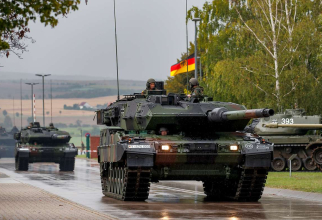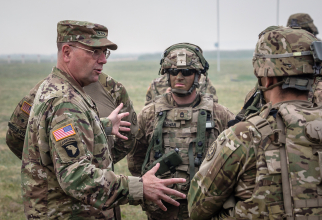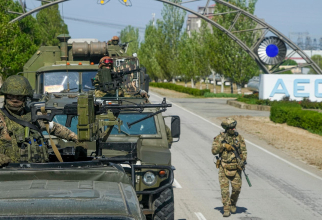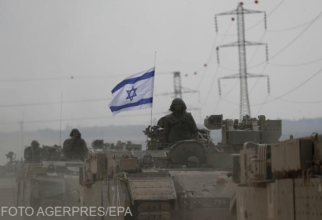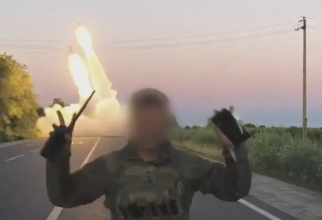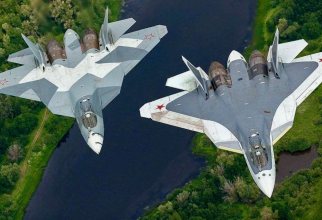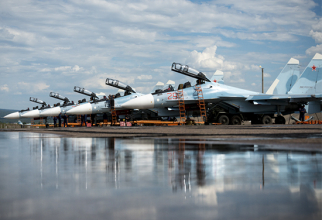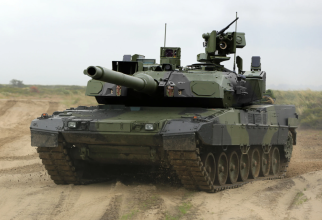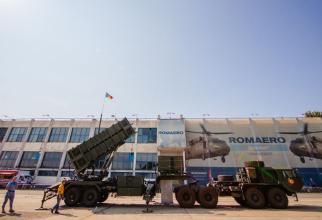The battle for leadership of the Muslim world: Turkey plants its flag in Christchurch
După șocul atentatului din Christchurch, cel mai mare oraș din sudul Noii Zeelande, lumea musulmană a privit cum un autointitulat soldat al fundamentalismului religios, creștin de data aceasta, poate să facă aceleași ravagii ca orice fundamentalist, reprezentând oricare religie. Partenerul DefenseRomania, Dr. James M. Dorsey ne trimite o analiză a modului în care marii actori statali musulmani au înțeles să se imerseze în tragedia din Christchurch. Turcia a creat de altfel valuri media, în urma declarațiilor președintelui său, care a reamintit de marile momente militare otomane din epocile trecute. Constantinopol sau Gallipoli, nume simbol ale măreției otomane, folosite în contextual dramei din Noua Zeelanda, exprimă din nou, în opinia lui James M. Doresey, semne ale unei gramatici deosebite care exprimă importanța Turciei în spațiul musulman și nu numai. Un articol care ne propune teme reale de reflecție.
When Turkish vice-president Fuat Oktay and foreign minister Mevlut Cavusoglu became this weekend the first high-level foreign government delegation to travel to Christchurch they were doing more than expressing solidarity with New Zealand's grieving Muslim community. Messrs. Oktay and Cavusoglu were planting Turkey's flag far and wide in a global effort to expand beyond the Turkic and former Ottoman world support for President Recep Tayyip Erdogan's style of religiously-packaged authoritarian rule, a marriage of Islam and Turkish nationalism. Showing footage of the rampage in Christchurch at a rally in advance of March 31 local elections, Mr. Erdogan declared that “there is a benefit in watching this on the screen. Remnants of the Crusaders cannot prevent Turkey’s rise.” Mr. Erdogan went on to say that “we have been here for 1,000 years and God willing we will be until doomsday. You will not be able to make Istanbul Constantinople. Your ancestors came and saw that we were here. Some of them returned on foot and some returned in coffins. If you come with the same intent, we will be waiting for you too.”
Mr. Erdogan was responding to an assertion by Brenton Tarrant, the white supremacist perpetrator of the Christchurch attacks in which 49 people were killed in two mosques, that Turks were “ethnic soldiers currently occupying Europe.” Messrs. Oktay and Cavusoglu’s visit, two days after the attacks, is one more facet of a Turkish campaign that employs religious as well as traditional diplomatic tools.
The campaign aims to establish Turkey as a leader of the Muslim world in competition with Saudi Arabia, the United Arab Emirates, and to a lesser degree Morocco. As part of the campaign, Turkey has positioned itself as a cheerleader for Muslim causes such as Jerusalem and the Rohingya at a moment that Saudi Arabia, the UAE and other Muslim nations are taking a step back. Although cautious not to rupture relations with Beijing, Turkey has also breached the wall of silence maintained by the vast majority of Muslim countries by speaking out against China’s brutal crackdown on Turkic Muslims in the troubled north-western province of Xinjiang. Mr. Erdogan’s religious and traditional diplomatic effort has seen Turkey build grand mosques and/or cultural centres across the globe in the United States, the Caribbean, Europe, Africa and Asia, finance religious education and restore Ottoman heritage sites. It has pressured governments in Africa and Asia to hand over schools operated by the Hizmet movement led by exiled preacher Fethullah Gulen. Mr. Erdogan holds Mr. Gulen responsible for the failed military coup in Turkey in 2016.
On the diplomatic front, Turkey has in recent years opened at least 26 embassies in Africa, expanded the Turkish Airlines network to 55 destinations in Africa, established military bases in Somalia and Qatar, and negotiated a long-term lease for Sudan’s Suakin Island in the Red Sea. The Turkish religious campaign takes a leaf out of Saudi Arabia's four decade long, USD 100 billion effort to globally propagate ultra-conservative Sunni Islam. Like the Saudis, Turkey’s Directorate of Religious Affairs (Diyanet) provides services to Muslim communities, organizes pilgrimages to Mecca, trains religious personnel, publishes religious literature, translates the Qur’an into local languages and funds students from across the world to study Islam at Turkish institutions. Turkish Muslim NGOs provide humanitarian assistance in former parts of the Ottoman empire, the Middle East and Africa much like the Saudi-led World Muslim League and other Saudi governmental -non-governmental organizations, many of which have been shut down since the 9/11 attacks on New York and Washington.
Saudi Arabia, since the rise of crown prince Mohammed bin Salman in 2015, has significantly reduced global funding for ultra-conservatism. Nonetheless, Turkey is at loggerheads with Saudi Arabia as well as the UAE over the killing of journalist Jamal Khashoggi; Turkish support for Qatar in its dispute with the Saudis and Emiratis; differences over Libya, Syria and the Kurds; and Ankara’s activist foreign policy. Turkey is seeking to position itself as an Islamic alternative. Decades of Saudi funding has left the kingdom’s imprint on the global Muslim community. Yet, Turkey’s current struggles with Saudi Arabia are more geopolitical than ideological. While Turkey competes geopolitically with the UAE in the Horn of Africa, Libya and Syria, ideologically the two countries’ rivalry is between the UAE’s effort to establish itself as a centre of a quietist, apolitical Islam as opposed to Turkey’s activist approach and its support for the Muslim Brotherhood.
In contrast to Saudi Arabia that adheres to Wahhabism, an austere ultra-conservative interpretation of the faith, the UAE projects itself and its religiosity as far more modern, tolerant and forward looking. The UAE’s projection goes beyond Prince Mohammed’s attempt to shave off the raw edges of Wahhabism in an attempt to present himself as a proponent of what he has termed moderate Islam. The UAE scored a significant success with the first ever papal visit in February by Pope Francis I during which he signed a Document on Human Fraternity with Sheikh Ahmad al-Tayeb, the grand imam of Egypt’s Al-Azhar, the revered 1,000-year-old seat of Sunni Muslim learning. The signing was the result of UAE-funded efforts of Egyptian general-turned-president Abdel Fattah Al-Sisi to depoliticize Islam and gain control of Al Azhar that Sheikh Al-Tayeb resisted despite supporting Mr. Al-Sisi’s 2013 military coup. To enhance its influence within Al Azhar and counter that of Saudi Araba, the UAE has funded Egyptian universities and hospitals and has encouraged Al Azhar to open a branch in the UAE. The UAE effort paid off when the pope, in a public address, thanked Egyptian judge Mohamed Abdel Salam, an advisor to Sheikh Al-Tayeb who is believed to be close to both the Emiratis and Mr. Al-Sisi, for drafting the declaration.
The Turkey-UAE rivalry has spilt from the geopolitical and ideological into competing versions of Islamic history. Turkey last year renamed the street on which the UAE embassy in Ankara is located after an Ottoman general that was at the center of a Twitter spat between Mr. Erdogan and UAE foreign minister Abdullah bin Zayed al-Nahyan. Mr. Erdogan responded angrily to the tweet that accused Fahreddin Pasha, who defended the holy city of Medina against the British in the early 20th century, of abusing the local Arab population and stealing their property as well as sacred relics from the Prophet Muhammad's tomb,. The tweet described the general as one of Mr. Erdogan’s ancestors. "When my ancestors were defending Medina, you impudent (man), where were yours? Some impertinent man sinks low and goes as far as accusing our ancestors of thievery. What spoiled this man? He was spoiled by oil, by the money he has," Mr. Erdogan retorted, referring to Mr. Al-Nahyan.
Dr. James M. Dorsey is a senior fellow at the S. Rajaratnam School of International Studies, co-director of the University of Würzburg’s Institute for Fan Culture
Fii primul care află cele mai importante știri din domeniu cu aplicația DefenseRomania. Downloadează aplicația DefenseRomania de pe telefonul tău Android (Magazin Play) sau iOS (App Store) și ești la un click distanță de noi în permanență
 Fiți la curent cu ultimele noutăți. Urmăriți DefenseRomania și pe Google News
Fiți la curent cu ultimele noutăți. Urmăriți DefenseRomania și pe Google News



